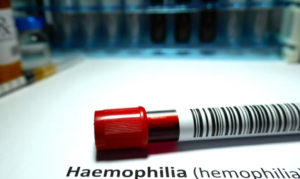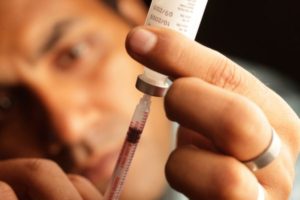
March 3 RxAdvocate March, 2023 — Newsletter
March Stories:
- New Hemophilia A Drug
- RSV Vaccine
- Wegovy and Ozempic
- Insulin Prices
FDA Approves New Hemophilia A Drug

On February 22, 2023, the FDA approved Altuviiio, the newest drug therapy for the treatment of Hemophilia A which affects ~1 in 5,000 male births each year.
Hemophilia A is the most common form of hemophilia occurring four times more often than Hemophilia B. Altuviiio is indicated for routine prophylaxis and on-demand treatment to control bleeding episodes, as well as perioperative management, for adults and children with Hemophilia A.
It is the first hemophilia A treatment that delivers near to near-normal factor activity levels for most of the week with once-weekly dosing, and significantly reduces bleeds compared to previous prophylactic therapies. Sanofi and Sobi manufacturers are co-developing Altuviiio which is expected to be commercially available in April 2023. Presently there is little pricing information for Altuviiio. The manufacturers stated they priced it “at parity” to the annual cost of prophylaxis treatment with Eloctate, which is now available at $12 per unit or a cost of $12,000 for a patient requiring 1,000 IUs weekly or $625,000 annually. Some patients may require dosing as high as 3,000 IUs weekly, resulting in an annual cost of $1.8M. The manufacturers will announce Altuviiio’s exact price when it becomes commercially available in the spring. Analysts project the drug’s sales will reach $1.376B USD by 2029.
FDA Warns of Potential Risks with Pfizer RSV Vaccine

In late February, Pfizer’s vaccine for respiratory syncytial virus (RSV) hit a speed bump. Two subjects, both adults in their 60s, who received the vaccine were diagnosed with Guillain-Barre Syndrome, a rare neurological disorder in which the body’s immune system attacks your nerves.
RSV is a common respiratory virus that usually causes mild, cold-like symptoms. RSV can be serious in infants or older adults, while most recover in a week or two.
With these findings, it is expected that the Vaccines and Related Biological Products Advisory Committee will discuss and make recommendations on the vaccine for adults 60+.
Wegovy and Ozempic Insights: Bodyweight Rebounds after Withdrawal + Significant Side Effects
Wegovy and Ozempic Insights: Bodyweight Rebounds after Withdrawal + Significant Side Effects

Weight loss medications like Wegovy and its diabetes counterpart Ozempic have been regarded by many as “weight loss miracles.” Wegovy gained it’s FDA approval in June 2021 for chronic weight management in adults with obesity or overweight with at least one weight-related condition (hypertension, type 2 diabetes, or hyperlipidemia), for use in addition to a reduced calorie diet and increased physical activity. Ozempic is FDA approved for the treatment of type 2 diabetes. Both products share the same active ingredient, semaglutide.
The STEP-1 extension study shows that people who lose weight while taking semaglutide regain two-thirds of what they lost during the first year after stopping the medication. Researchers describe the weight regain after discontinuing semaglutide as “relatively rapid “compared to the weight gain observed after the withdrawal of other weight-loss medications. This rapid rebound weight gain is not surprising after stopping semaglutide given how the drug works. Semaglutide is a glucagon-like-peptide-1 (GLP-1) agonist, GLP-1 is the hormone in our body that tells us we are full, and the result is reduced caloric intake. When semaglutide is discontinued, appetite returns causing the rebound weight gain.
Wegovy and Ozempic cost up to $1,500 per 30-day supply and come with significant side effects including troublesome nausea/vomiting/diarrhea and increased risks for pancreatitis and some cancers. For these reasons, insurance coverage is spotty. Medicare does not cover any weight loss medications and most commercial plan sponsors follow suite.
Insulin – Eli Lilly Aims to Cut Prices
Insulin – Eli Lilly Aims to Cut Prices

The price of Eli Lilly’s most frequently prescribed insulin drug, Humalog, is slated to drop 70% near the end of 2023. The Inflation Reduction Act, that went into legislation in August of 2021, capped insulin prices at $35 for those on Medicare.
Studies show the average price of insulin in 2018 was 10 times higher in the United States as compared to other wealthy countries. A bipartisan campaign to study the prices of insulin ended in 2021.
The $35 cap on insulin will be available to members with private insurance. Those without insurance will be able to enroll in a program through Eli Lilly that will also cap the price.
Contact us
Visit us on the web at www.rxconnectionllc.com.
If you would like additional information on our services please contact:
Orlando Neal — Principal
Orlando.Neal@rxconnectionllc.com
Orlando.Neal@rxconnectionllc.com


